|
THE PFB FACTOR
(Formerly known as PGB)
This feature was
originally written on 9th October 2005 for publication in a
book to
be edited by Kieron Gillen and Jim Rossignol (I don't remember if it
ever officially had a title). It was originally intended to be a
simple rewrite of the WoS feature "The
PGB Factor", but ended up being a completely new piece on the
same theme, plus I think it's quite spiffy, so you might as well see it.
CATCH!
SWING!
JUMP!
CHOP!
FIRE!
That's MY kind of instruction manual, viewers.
Remember when you were a little kid?
Not the rose-tinted fantasy of childhood people tend to develop in
retrospect, but the reality. Remember how - in between the
boredom of school, and being dragged round the shops with your mum,
and having to do your homework, and everyone telling you to be quiet
when the grown-ups were talking, and being made to go to bed before
you were tired and before all the good TV was on - there was a
good bit? Remember those precious few hours in early evenings
and at weekends when you'd get a little taste of freedom, and you
could go out and meet up with your friends and just play?
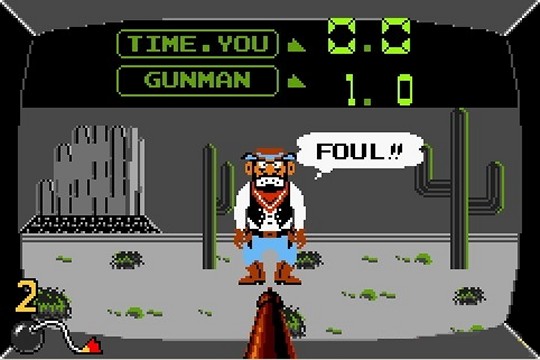
And do you remember the hours and
hours you would spend learning all the complex rules of Cowboys And
Indians, carefully studying the hundreds of pages in the football
lawbook, and going through an long, twelve-stage tutorial of how to
use a rope swing?
No, of course you don't remember that,
because it didn't happen. Like every kid in the world since history
began, you just dived in and started enjoying yourself, and picked
up the complex stuff as you went along. And so it was when
videogames were born. (Even if you weren't personally there at the
time, you can take it from me - that's how it was. I'm an honest
guy.) The first time us would-be video gladiators of the late 1970s
walked up to a Space Invaders machine and dropped a coin in the slot, we knew what
we were supposed to do. It was
pretty obvious, after all - there's a fleet of big ugly aliens
marching down towards Earth, and you're facing up at them with a
laser gun. Not rocket science, right?
Then Pac-Man showed up. You were in a
maze full of stuff that you could eat, and there were spooky-looking
ghosts running around. You knew instinctively that you had to avoid
them, way before anybody told you to. (Because they're ghosts,
duh.) Giant flashing dots in the
corners? Must be something good, yeah? Never mind waiting for some
patronising virtual dad to explain it to you in words of one
syllable like you were a dumb four-year-old - go get 'em and see
what happens! Jeez, you're not stupid. And so it went, for years and years
and years of blissful and instant fun. You put your money in, you
looked at the screen for two seconds, and you knew what was required
of you. Life was complicated enough already, after all. What kind of
freak wanted to pay good money for some more work?
So how did we get from there to here? When did the simple joy of
playing turn into something more complex and gruelling than that
four-year degree in Applied Mathematics you took? By what route did
we arrive at games about which people will tell you with a straight
face, "It's really dull for five or six hours at the start, but then
it gets quite interesting"? What the hell? Did we miss a meeting?
WHAT HAVE YOU BASTARDS DONE TO OUR VIDEOGAMES?
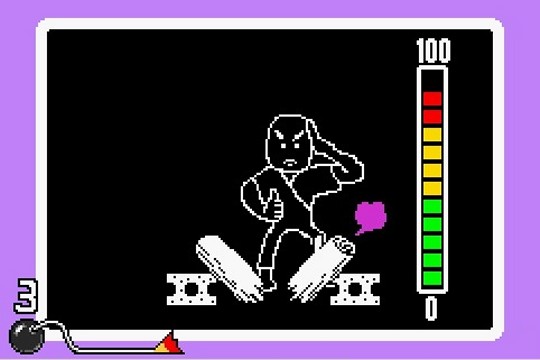
The first time I heard someone utter those awful, craven words -
about Final Fantasy VII back in the mid-90s - I knew something had
gone terribly, terribly wrong with the beautiful
artform/entertainment/pastime/sport/culture that I loved. And now
that I'm all grown up and I can express my feelings and stuff, I've
given my pain a name - The PFB Factor.
PFB, of course, stands for Pre-Fun Bullshit, and it's measured in
two elements. The first represents the time taken before you
actually get to any of the good stuff (so FFVII's scores six hours,
while Pac-Man's is zero), but it takes many forms:
- the unskippable intro movie (voiced
by the actors who weren't good enough to do the adverts on cable-TV
shopping channels);
- the nine flashy company logo
animations in a row, (as if we give a rat's flea-bitten balls what
the trademarked polygon-display engine is called);
- the compulsory tutorial (even if
you've played three identical previous games in the series and
ALREADY KNOW HOW TO DRIVE A DAMN CAR IN A STRAIGHT LINE - you're
going to burn in HELL, creators of Gran Turismo 4);
- the hours and days and weeks and
months of
gruelling, grinding levelling-up you have to do in some dismal RPG
before you've got the power to test your mettle against any of the
halfway-interesting bad guys (ie pretty
much every RPG);
- great swathes of insultingly easy
levels designed to give ham-fisted adolescent morons an empty and
undeserved sense of achievement (hello, Burnout Revenge);
- and, first up against the wall when
the revolution comes, all those games where nearly everything starts
off "locked", unavailable to you - despite all the money you've just
handed over for the damn thing - until you jump through a bunch of
stupid tedious hoops for hours and the Satan-spawned designers will
finally actually let you play the bit of the game you bought it for.
GOD DAMN THEIR WRETCHED, HATE-FILLED SOULS.
Um, anyway, the second element of the
PFB Factor measures a related value - the IGB Coefficient. Expressed
as a number of percentage points, it represents that part of total
gametime - yes, Zelda, we're looking at you here - where games force
you to wade through hours and hours of remedial-class-slow
story-reading, and trekking back and forth across enormous empty
maps or hub systems, before every little shiny moment of Fun they
grudgingly give up. (The IG is for "In-Game", obv, and the IGB
Coefficient on FFVII comes out at around 95, multiplied by the six hours
of introductory crap for
a total PFB Factor of a skyhigh 570. Anything over 50 is a serious
problem.)
The player - who started off a fearless and mighty warrior of the
universe, remember - finds himself or herself reduced to the status of a rat in
a maze, occasionally rewarded with a little morsel of something
tasty to keep them performing mundane and tedious tasks of work over
and over and over until they grow old and weak and get fed to a
snake.
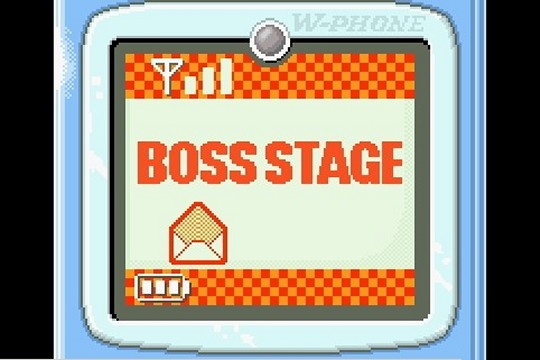
And you can't even break these Herculean tasks of endurance down
into manageable chunks, either. Play halfway through a Final Fantasy
then leave it for a month, and your chances of remembering what's
going on in the insanely convoluted plot when you come back to it
will be so remote that you might as well start again. So when you
enter into the mammoth undertaking that is a typical modern
videogame, you're committing yourself not only to hours of
spirit-crushing drudgery, but to sticking at this dullard's busywork
for weeks at a single continuous stretch. And that's just offline
games, before we even start on those massively-multiplayer online
RPGs with their guilds and professions and careers and, for all I
know, index-linked virtual pension schemes. If this writer wanted to
spend hours every day making shoes, viewers, he'd become a real
shoemaker and at least get paid for it.
So cobblers to all that. (Yeah, cheers.) Videogame developers and
publishers - take your PFB Factor and cram it somewhere it'll take
more than five or six hours of unpleasant, repetitive effort to get
it out of. If videogames had started off with all that
trolls-and-goblins-
and-hoarding-gold-for-a-Level-65-Platinum-Wanking-Gauntlet crap,
they wouldn't ever have caught on in the first place. So it's long
past time that tribute was paid to the modern games that keep the
flame of instant happiness alive. The stuff where you can just pick
up the pad, press Start, take a quick glance, and leap straight into
the heart of the action, the way it used to be before everyone got
so all-fired serious and po-faced about the business of moving
coloured lights around on a little screen.
Now, we'll start giving out the medals in a second. But
hyper-accessible games are often misunderstood. They're seen as
throwaway, short-term entertainment, something you occupy 10 minutes
of a bus journey with before you get home to your "proper" gaming.
(Uncannily mirroring, for attentive readers, those hours of school
we mentioned before that you used to have to endure before being
allowed a little sliver of unregimented time to enjoy yourself in.)
But a truly accessible game will keep you glued to the screen for
hours at a time, even if it only took you two seconds to start
playing it, because it wants you to live in its world. Accessibility
encompasses immersion. Man, us writers live for sentences
like that.
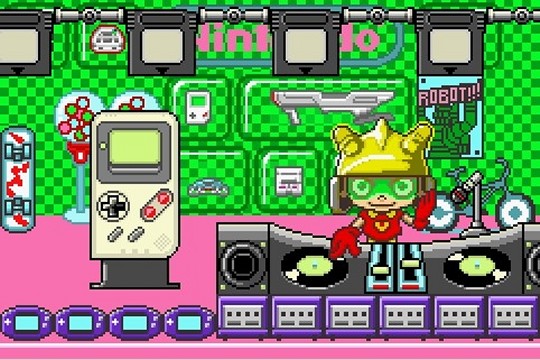
When I was asked to write this article, I sat down with my copy of
the Game Boy Advance's magnificent Wario Ware Inc, and wrote down
the first five words it said to me - they're the ones that kick off
the chapter. I came to Wario Ware knowing next to nothing about it,
and having read only a couple of reviews in the gaming media -
neither of which seemed to have enjoyed it and mostly just whined
about how short and shallow it was. And yet, inside a minute, I
couldn't put the damn thing down. Jaded by years of nerd epics, I
couldn't quite believe the pace I was having new ideas thrown at me
- literally one every five seconds.
"AIM!", it yelled, as a fat man fell from the sky towards a
massive floating diamond and a big hole in the ground.
"BALANCE!", as a guy on a unicycle tried to keep a teetering
pile of blocks on a tray steady. (Why? No time to find out! Here
comes another game!)
"PUSH!" - a beetle with the face of Mario's nemesis
Wario suddenly
has to shove a golf ball into a hole For Some Reason.
You had one second to read the one-word instruction, one more second to look at the
screen and relate the word to the scenario somehow, and one final
second to actually do it. The commands come at you like bullets out
of a machine-gun.
|
INSPECT! |
DRESS! |
BRAKE! |
|
GRAB! |
SCARE! |
LICK! |
|
DODGE! |
PUNCH! |
BOUNCE! |
Those are the words I want engraved on my
headstone, chums.

Wario Ware was an epiphany. It was the game that made me actually
carry my GBA SP around with me (previously, like most people's
handhelds, it had never left the house), so that I could play it
whenever I had the slightest chance. It could be "finished" (in the
sense implied by the clueless reviewers) in an hour, but as with all
the best games, "finishing" it was only the start. Every time you
picked it up you'd encounter new micro-games, unlock some fantastic
bonus feature (and they really were bonus features, not
something that should have been there from the start), or see some
new thing that'd make you laugh out loud and have everyone on the
bus look at you and frown.
(My favourite single moment is still the dungeon boss -"OUTWIT!" - of
Orbulon's section. "What are you thinking?", yells
the battle's unseen commentator, stunned into disbelieving horror by
your complete stupidity.
"Blumbarang does not
affect Hungraa! Incredible damage!")
I couldn't leave the damn thing alone. Not because I'd forget the
story if I didn't play it for two days - Wario Ware HAS a story, but
I couldn't tell you the first thing about it - and not because I had
to win 79 more battles to unlock the Sword Of Infinite Pointiness and
fight Morgnax The Perpetually Bad-Tempered, but because I was
addicted to the fun. I lived in Wario's world, and reality was just
another minigame. In the supermarket, as my groceries came down the
belt, the word "PACK!" flashed across my eyes as I tried to
get them into the carrier bags as fast as the cashier could scan
them. "AVOID!", yelled my brain as I dodged the traffic
crossing the road. "CHARM!", as I tried to pick the right
conversational option with the nice girl in the bar. "TWEAK!",
as - well, never you mind about that one.
This was videogaming where the fun bits came ALL the time, not like
a food pellet dispensed after every four hours of obedient effort.
Every time you did something right you got a reward, and every time
you did something wrong you didn't have to go back and repeat it 50
times, because there was a whole new challenge coming in two
seconds' time. This was - still is - the purest videogaming on
Earth, friends.
Not feebly aping some other artform like Dungeons
And Dragons; not trying to replicate the empty physics of some more
exciting and dangerous pursuit that you're too chicken to go and do
for real; not piggybacking on someone else's ideas by tacking a load
of generic gameplay onto a big movie licence; but undiluted,
unashamed, inimitable videogaming. This was the thing I'd fallen in
love with all those years ago. We'd grown apart and grown up and
lost touch, but a chance meeting had set the old fires burning again
like it was the first time.
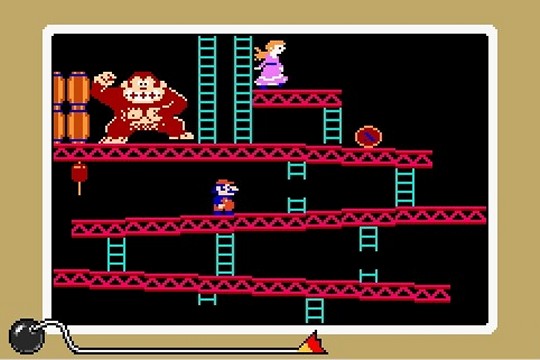
But you're probably already thinking "Jeesh, get a room", so
I should point out that it's not just about Wario Ware, of course.
The gaming world is full of beauty and joy that exists in the cracks
between the tired blockbusters and the hyped-up rubbish with the
paid-for reviews and the yearly franchise updates, in places where
the PFB Factor never existed. You want names? I've got names:
- Namco's brilliant
Point Blank series
of lightgun games, where all you need is an alert mind and the
ability to point;
- The superb Xbox conversion of
OutRun 2, the racing game that you can enjoy without sitting a
three-hour test first, stuffed full of dozens and dozens
of fun little missions;
- The Playstation's tragically unsung Hasbro update of
Pong, with more imagination and invention in its little finger
than last year's entire Top 40 sellers put together;
-
The Typing Of The Dead, the funniest videogame in the world bar
none;
- All of Konami's endless Dancing Stage line (just pick
the one that has your favourite songs on it), except played the
hardcore-gamer way: with a joypad instead of a dance mat. A pure
old-skool combination of reaction, mental agility and co-ordination,
but one that you can explain to your grandmother and your
six-year-old niece alike in seconds;
- Soul Calibur 2, the most exuberantly, gloriously gay videogame ever
built around the idea of killing people with swords and axes, its
codpiece packed to bulging with tiny little gaming vignettes where
you can win a Barbie's wardrobe of new clothes to dress your virtual
dolls in;
- and Meteos, the pretty Nintendo DS puzzle game whose single,
absurdly simple premise (drag blocks down the screen with the
little stick to form lines, granny) conceals the deepest, most
varied, most inexhaustible game structure in years.
I could go on and on, but in fact I'll
stop so we can get to the point. Those of us who still have some joy
in our hearts, who donít want to surrender all of our free time to
plodding with dead eyes and dead hearts around someoneís medieval,
goblin-strewn fantasy land (is that the limit of your
imagination, you pitiable, Tolkien-obsessed twerps?) have had a hard
time of it in the 21st Century. Games have largely become puffed-up,
overblown monstrosities, padding thin ideas out to ludicrous,
emptily-bloated sizes
to try to justify the astronomical costs of their development, and
to delay the moment when their unfortunate players realise just how
little actual substance they contain.
Imagine a modern videogame as a
doughnut 20 feet wide, covered in sparkly sugar, glistening icing,
mountains of cream and sprinkles all the colours of the rainbow. It
looks impressive and delightful and thrilling, but you'd be bored
and queasy long before you'd eaten even a tiny fraction of it, and
if someone told you you HAD to finish it it'd feel like a draconian,
merciless punishment for some dreadful crime. But if you truly love
videogames for what they are and for what they can be (and if you
look hard enough) you can find games a hundredth of that size that
are a thousand times cleverer, and which will keep you entertained -
with a big stupid kid's smile on your face - for 62.8 times as long.
We still, just about, have the power
to shape the future of videogames into something better than where
it's going - to seize control from the fat, cynical boardroom
boss-monsters who have kidnapped our generation's innocent, angelic
new artform and enslaved it for the benefit of their vile reptilian
shareholder-henchmen. They are Bowser and his scaly minions. We -
you and I - are Mario and Luigi.
Friends! Rise up! Save our beautiful
princess! Say "NO!" to the PFB Factor!
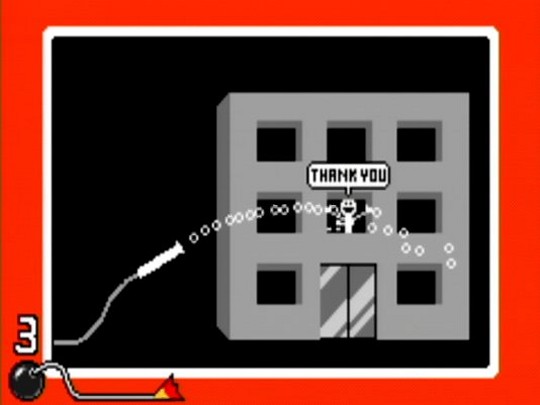
|

